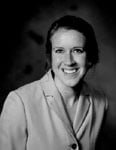One in four college women have been raped or suffered attempted rape, the FBI reports. “Even if the number is significantly less at Guilford, we still need to develop better programs and resources for students,” said Cyndi Briggs,Guilford graduate and Guilford’s first Director for Gender Issues and Retention.
Since 1999, Guilford College has reported zero incidents of forcible and non forcible sex offenses to the US Department of Education.
“To me, this points to the lack of support and structure that students need to come forward and report incidents if they are ready to,” said Briggs.
Prior to the creation of Briggs’ new role, students did not always know where to turn for help. “In the past, when a student was assaulted, they would usually confide in a professor or someone from the health center,” said Briggs, “but there was no established, concrete support network for them to enter.”
“The sexual assault piece is currently our main focus,” Briggs said. However her role encompasses raising awareness about several other gender issues including those of sexual orientation, eating disorders, abusive relationships, and self-mutilation.
“Sexual assault, misunderstandings about gender, and homophobia are very serious problems plaguing college life in general. Guilford is no exception,” said Gender Issues Advisory Council member and Guilford philosophy professor Nancy Daukas.
“Cyndi’s position was created in order to put an end to such violent and insulting behavior, to help survivors heal, and to provide educational programs about gender issues in order to create a more respectful, supportive, and healthy community,” said Daukas.
Although Guilford, like any college, is not immune to sexual assault, homophobia, and other problems involving gender issues, we may have an advantage over other schools. “At Guilford, folks aren’t afraid to get their hands dirty in these kinds of issues,” Briggs said.
At Guilford, gender issues are incorporated into classes such as “Women, Body, Voice” taught by John and Carol Stoneburner. Student organizations such as P.R.I.D.E. and S.A.F.E. were created specifically to explore gender issues. Campus-sponsored events such as the Q.B.L.S.T. Poetry Slam and S.A.F.E.’s “Take Back the Night” are opportunities for students to get involved in facing these issues.
Despite great effort on the part of students like senior and S.A.F.E. president John Boyd and professors like Daukas and Stoneburner, problems surrounding gender issues are still quite present on campus.
“Like many small schools, we still struggle for a sense of community,” Briggs said. “We need to make an effort to realize that we are all at different stages in personal growth. Only then can we work together.”
Briggs looks forward to another year as faculty advisor to S.A.F.E. and working with the Sexual Assault Response Team along with her newly created Gender Issues Advisory Council. “The Council was created as a way of keeping lines of communication open with various parts of the community about gender issues,” said Daukas.
The Council has already delved into its biggest tangible project: the rewriting of the sexual misconduct protocol.
According to Briggs, student involvement is key to the process. “Students themselves are on the committee reviewing Guilford’s Protocol on Sexual Assault,” Boyd said.
Briggs calls the existing protocol “seriously flawed,” pointing out that it did not address aspects of misconduct including stalking, fondling, and verbal and e-mail harassment. The new protocol should be published on Guilford’s web site this spring.
Briggs’ other projects include working with S.A.F.E. to develop a 24-hour sexual misconduct hotline, training R.A.’s in the basics of assault response and support, and getting the word out about what “consent” really means. “It’s more than saying, ‘Okay, I guess I’ll do it’. Sometimes just getting people to understand that is a project in itself,” Briggs said.
It seems that Briggs has her work cut out for her, but her colleagues are enthusiastic that she is the perfect person for the job.
Daukas, who played an integral role in the creation of Briggs’ position, said, “She has precisely the combination of qualities necessary for succeeding in her role. She is caring, sensitive, and trustworthy; she understands student life; and she is highly professional and effective. She knows how to get things done while maintaining strict confidence.”
“Cyndi is a catalyst for positive change,” said Boyd. “When she says she’s going to get something done, she does it immediately.. This is exactly what we need right now at Guilford.

